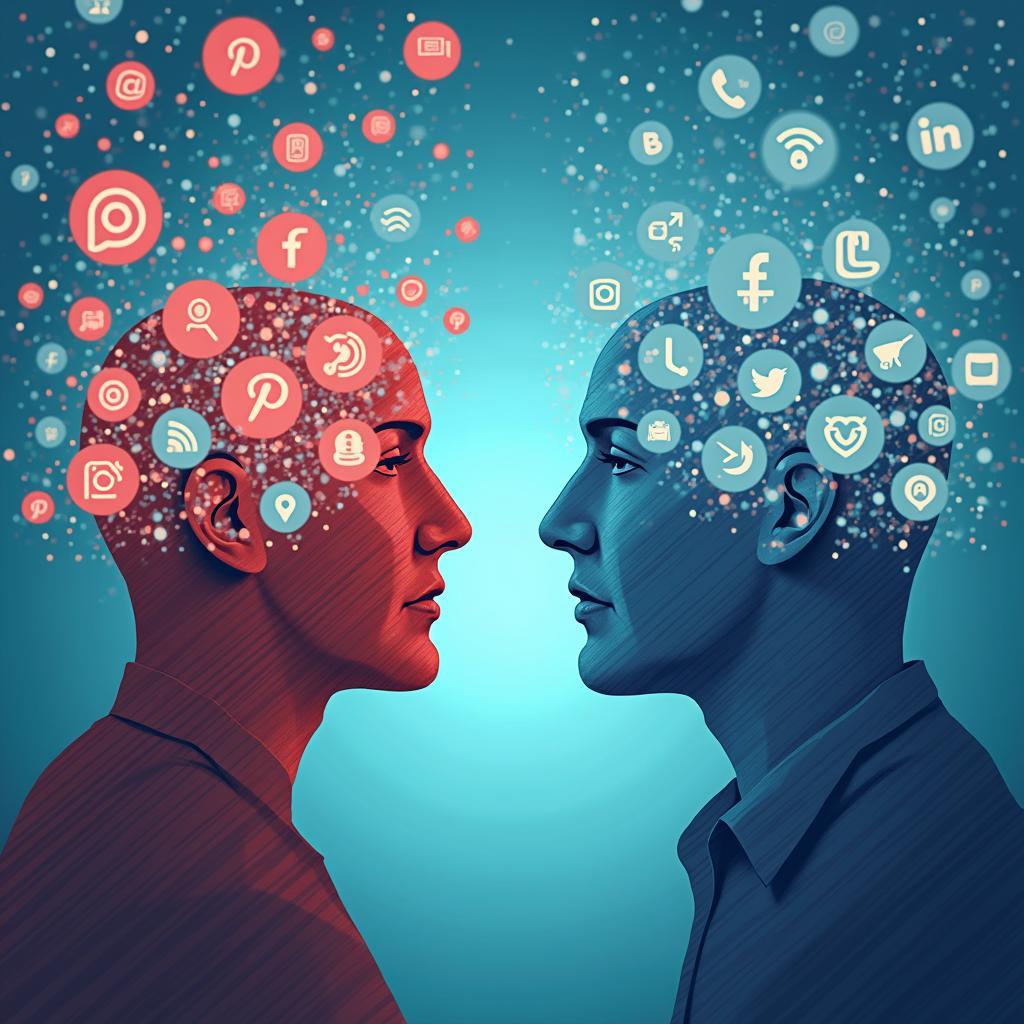Political polarization has become an increasingly common topic in IELTS Writing Task 2, particularly in questions about society and social media’s influence. As the effects of social media on political polarization continue to shape public discourse, this theme frequently appears in recent exam questions.

Task Analysis
Some people believe that social media and the internet have increased political polarization in society. To what extent do you agree or disagree with this statement?
This question requires candidates to evaluate how impact of social media on political campaigns contributes to political division. Let’s examine sample responses across different band scores.
Band 9 Sample Essay
In recent years, the role of social media and online platforms in exacerbating political divisions has become increasingly evident. While some argue that these technologies merely reflect existing societal divisions, I strongly agree that they have significantly amplified political polarization through various mechanisms.
The algorithmic nature of social media platforms creates echo chambers that reinforce existing beliefs. When users engage with specific political content, the platforms’ algorithms automatically feed them similar viewpoints, effectively isolating them from opposing perspectives. This phenomenon, coupled with the influence of social media on political movements, creates ideological bubbles where individuals are rarely exposed to challenging viewpoints.
Furthermore, the instant nature of social media communication often promotes emotional rather than rational responses to political issues. Users tend to share and react to inflammatory content more readily than nuanced discussions, leading to increased antagonism between different political groups. The anonymity provided by online platforms can also encourage more extreme expressions of political views without fear of real-world consequences.
However, it is crucial to acknowledge that social media platforms could potentially facilitate constructive political dialogue. If properly moderated and designed to promote diverse viewpoints, these platforms could bridge political divides rather than widen them. This would require significant changes to current algorithms and user behavior patterns.
In conclusion, while social media and the internet have the potential to unite people, their current implementation has undeniably contributed to increasing political polarization. To address this issue, both technological solutions and increased digital literacy among users are necessary.
Band 7 Sample Essay
Social media and internet platforms have become significant factors in shaping political opinions in modern society. I agree that these technologies have contributed substantially to increasing political polarization through several mechanisms.
Firstly, social media algorithms tend to show users content that aligns with their existing views. This creates what experts call “echo chambers” where people mainly see posts and opinions that confirm their beliefs. When someone frequently reads news about one political perspective, they become less likely to understand or accept different viewpoints.
Additionally, social media and political influence has made it easier for people to spread misinformation quickly. False information can travel faster than truth on social media platforms, leading to increased misunderstanding and distrust between different political groups.
However, social media also provides opportunities for political education and engagement. When used responsibly, these platforms can help people learn about different political views and participate in meaningful discussions. The problem lies not in the technology itself but in how it is used.
In conclusion, while social media and the internet have clearly contributed to political polarization, the solution may lie in better platform design and improved digital literacy rather than abandoning these technologies altogether.
Key Vocabulary
- Polarization (n) /ˌpəʊləraɪˈzeɪʃən/ – division into opposing groups
- Echo chamber (n) /ˈekəʊ ˌtʃeɪmbə/ – environment where people encounter only beliefs similar to their own
- Antagonism (n) /ænˈtæɡənɪzəm/ – active opposition or hostility
- Nuanced (adj) /ˈnjuːɑːnst/ – characterized by subtle differences
- Digital literacy (n) /ˈdɪdʒɪtl ˈlɪtərəsi/ – ability to use digital technology effectively
Conclusion
The topic of political polarization continues to be relevant in IELTS Writing Task 2. Similar questions might focus on The impact of social media on political activism or the role of traditional media in political division. Practice writing responses to these variations to improve your essay writing skills.
We encourage readers to share their practice essays in the comments section for feedback and discussion.